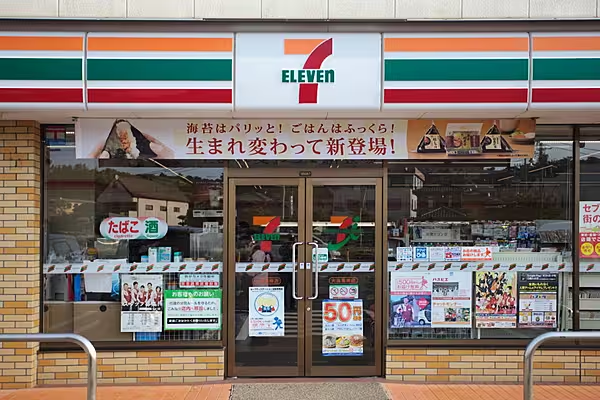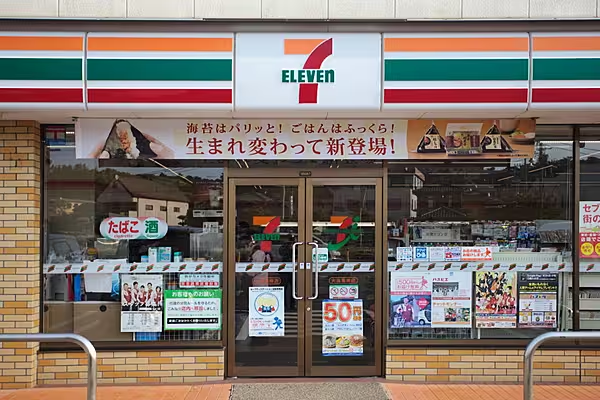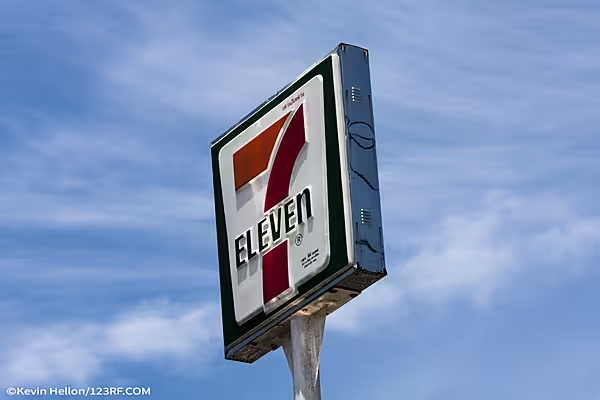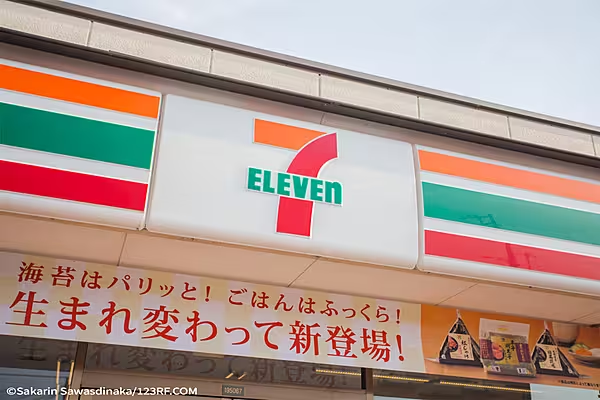Seven & i Holdings Co. will take over and delist debt-laden mail order catalog operator Nissen Holdings Co., its first major step in a broad restructuring of weaker units as the world’s largest convenience store operator forecast group net income that fell short of expectations.
By turning Nissen into its wholly owned unit, “it would be possible to increase the management efficiency of the Seven & i Group as a whole and to swiftly and steadfastly implement a drastic business structure reform,” it said in a statement Tuesday. Seven & i will pay 0.015 share for each in Nissen, with the delisting planned for October 27, according to the statement.
Nissen shares fell by the trading limit Wednesday down 40 percent to 76 yen, reversing the 31 percent surge a day earlier before details of the buy-out was announced. Seven & i dropped as much as 1.8 percent to 4,189 yen. Seven & i’s share swap offer would have valued Nissen stock at about 64 yen based on the parent’s 4,267 yen closing price Tuesday.
President Ryuichi Isaka, installed May 26 after a boardroom tussle with his former boss, had planned to announce a growth strategy and structural reform plan for Seven & i 100 days from taking office. Billionaire investor Dan Loeb has called for it to restructure general-merchandise unit Ito-Yokado Co. and divest retailers Nissen, Sogo & Seibu and Barney’s Japan.
Seven & i’s acquisition of Nissen is “anticipated at below market price,” Yoshiyuki Namiki, a retail analyst at SMBC Nikko Securities Inc., wrote in a report Tuesday. While the parent is making progress with its restructuring efforts, the impact on earnings so far is still limited, he wrote.
Mailed Kimonos
Nissen faces cash flow risks this month, according to the statement. Its net assets are expected to be 69 million yen in the second quarter of the fiscal year ending Dec. 2016. If no measures are taken, its debts are anticipated to exceed its assets at the end of the fiscal year, according to the statement.
Seven & i owns a 50.74 percent stake in Nissen, which sells clothing, household goods, jewelry, and kimonos by mail. Nissen has seen its losses deepen yearly since 2013 as it struggled to compete with the proliferation of online retailers. It reported a net loss of 13.3 billion yen for the year to Dec. 2015.
“Nissen’s way of business is out of date in this e-commerce competitive era,” said Dairo Murata, an analyst at JPMorgan Securities Japan Co, by telephone. “Seven & i originally acquired Nissen for its omni-channel strategy, but there’s too much write down from the business now.”
Following the transaction, Nissen will become a wholly owned subsidiary of Seven & i Net Media Co., which is wholly owned by Seven & i.
Shut Stores
Seven & i also issued forecasts for the group on Tuesday, projecting 172 billion yen ($1.7 billion) in net income for the fiscal year ended February 28, 2017, below the 190.1 billion yen average estimate from analysts surveyed by Bloomberg, while operating profit is forecast at 379 billion yen, compared with the 372.9 billion yen estimated by analysts.
In a separate statement, Seven & i said it will close two of its Seibu stores, and seek to cut 350 jobs through voluntary retirement.
News by Bloomberg, edited by ESM. To subscribe to ESM: The European Supermarket Magazine, click here.














